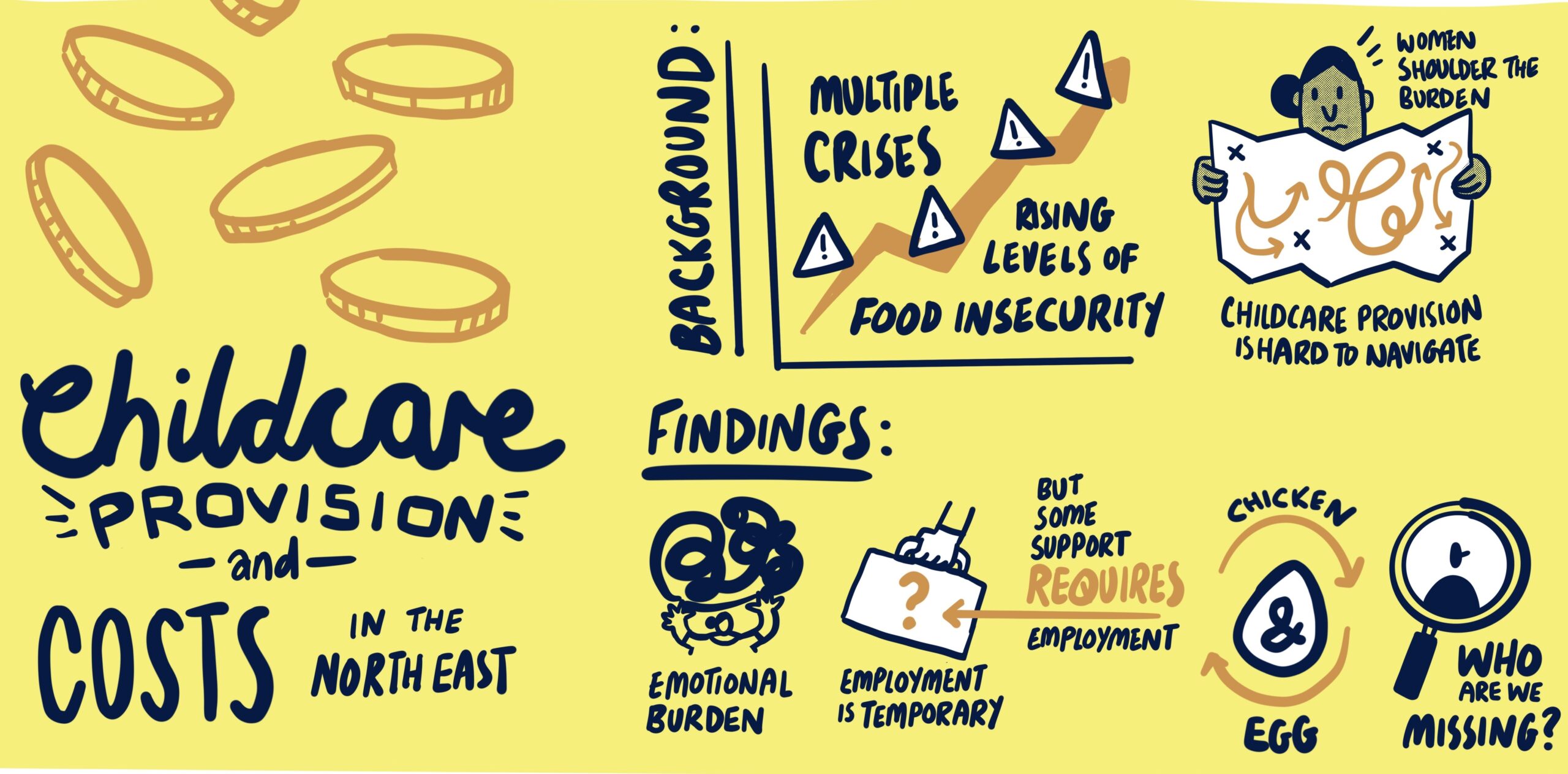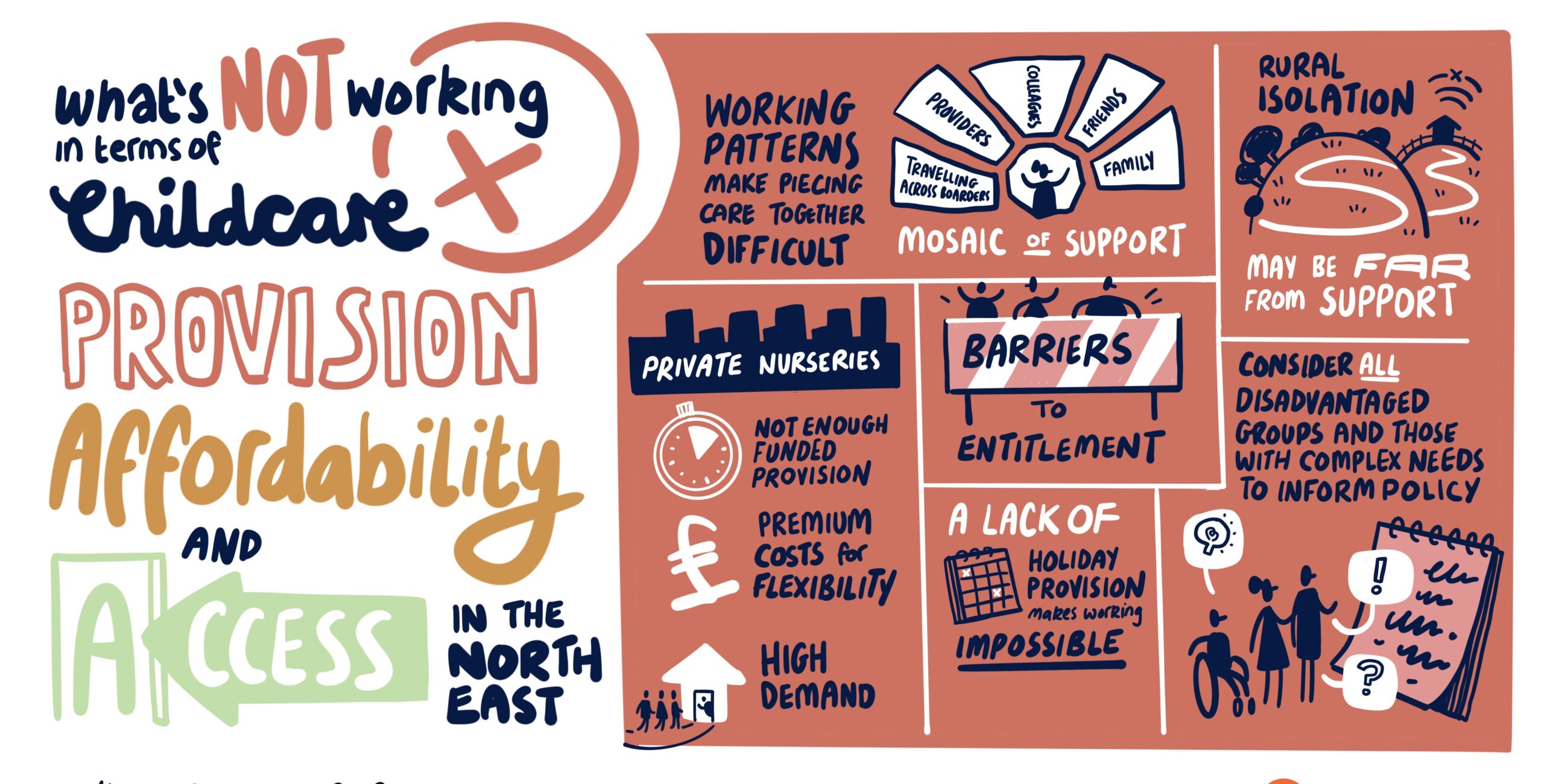Research examines childcare in the North East and offers four key recommendations for reform
News

A new report supported by the NIHR Applied Research Collaboration (ARC) North East and North Cumbria has explored experiences of formal and informal childcare in North East England and offers four key recommendations for reform.
‘Childcare shouldn’t be a luxury: Exploring experiences of formal and informal childcare in North East England’ highlights some of the challenges parents and carers can face around finding suitable childcare, and also explores the views of childcare providers.
The report has been developed by Health Equity North and researchers from Newcastle University and Manchester University.
Researchers interviewed parents and carers across the North East of England, who talked about the sacrifices needed to make ends meet – and the loneliness, isolation and anxiety they felt when they didn’t receive adequate childcare support.
Pictured below: A visual summary of the view from parents

Childcare providers are also under significant pressure, both in recruiting qualified and willing staff and in meeting the needs of families. Several providers now have food banks on-site, and find themselves offering a broad range of support beyond childcare. They also struggle to find and retain staff, particularly those with the right training and experience.
Pictured below: A visual summary of some of the issues highlighted from the research

The report authors have called for childcare to be recognised as a vital piece of national and regional economic infrastructure, which is necessary for both the health and wellbeing of families and the development of the children themselves.
The report offers four key recommendations to address the issues raised.
Pictured below: A visual summary of the recommendations

Lack of support can impact health
Report co-author Dr Natalie Bennett, who led research into the issue during her NIHR ARC NENC Research Fellowship, said: “The families, carers and childcare providers we interviewed across the North East offered an honest and often distressing reminder of the importance of childcare – and what an absence of support can do to their financial and emotional health.
“Without adequate childcare, parents often find themselves isolated, facing mounting costs, and their children can find it more difficult to adjust to school as they grow older. Urgent action is needed to give families the help they need – and to ensure childcare providers are supported in delivering care that makes a real difference.”
Report co-author Dr Steph Scott, Senior Lecturer in Public Health and Qualitative Methods at Newcastle University, said: “For so many families across the North East and beyond, access to childcare is not simply a luxury. It’s an essential lifeline, allowing them to maintain jobs, a source of income and even a sense of self.
“While some work has been done by recent governments, many of our most vulnerable are still finding themselves left out. We urge the government to consider our recommendations to assure that vital childcare support is offered more widely and transparently.”
North East Mayor Kim McGuinness is supporting the report. She said: “Good childcare is often the difference between a child growing up in poverty or a family being able to live a fuller life and thrive. It can help children grow in confidence, and imagine a better future.
“As this report highlights, there is still more to be done to help more people access this support. We need to ensure that funding is more accessible for all, and that we consider the barriers that many face, particularly when trying to find employment.”
The report has been produced as part of a partnership between the Northern Health Science Alliance’s Health Equity North, Newcastle University, Durham University, the North East Child Poverty Commission, Ways to Wellness, the North East Combined Authority, Disability North and the National Institute for Health and Care Research (NIHR) Applied Research Collaboration (ARC) North East and North Cumbria. It was funded by Newcastle University and the Catherine Cookson Foundation.